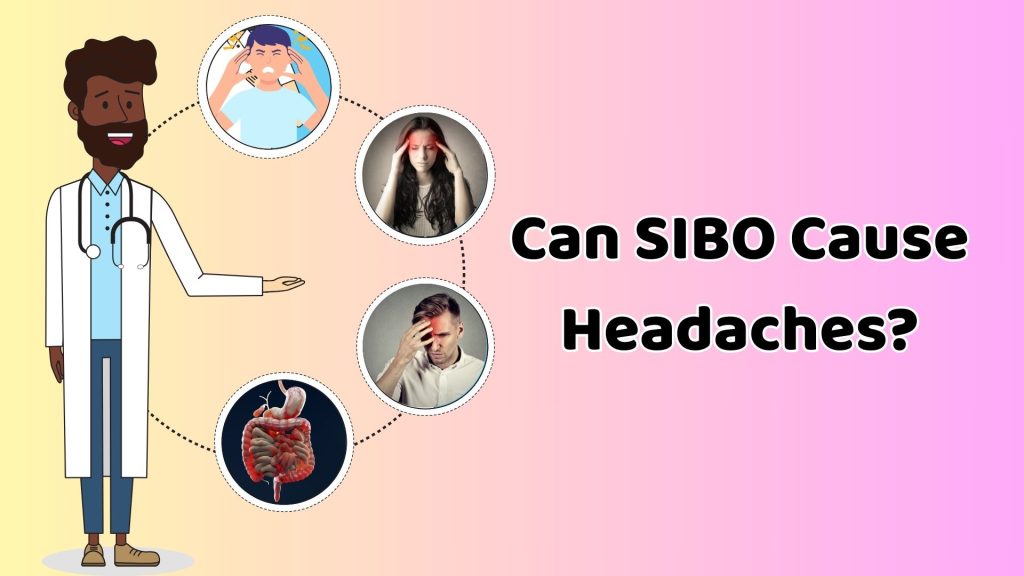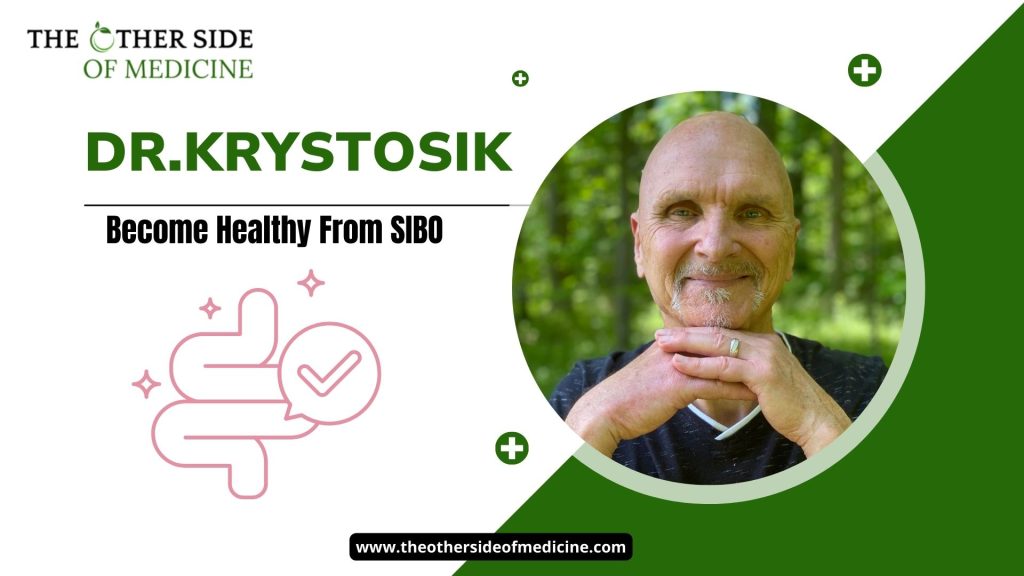Have you ever experienced nagging headaches that no MRI, no bloodwork, and no prescription could explain? If so, your gut may be sending distress signals—and it’s time to listen. Small Intestinal Bacterial Overgrowth (SIBO) is a hidden culprit that often flies under the radar in conventional medicine.
But from a functional medicine perspective, it’s a red flag we should never ignore. SIBO doesn’t just cause bloating, gas, and abdominal pain—it can reach far beyond your digestive tract and even show up as headaches.
Are you surprised? SIBO may be the unexpected culprit behind those pounding temples.
Can SIBO Cause Headaches? The Gut-Brain Axis and Headaches

The gut-brain axis is a communication highway between your digestive system and your nervous system. Your gut is home to over 100 million neurons—so many that it’s often called your “second brain.” Through the vagus nerve, immune signals, and neurotransmitters like serotonin and dopamine, your gut talks directly to your brain.
When SIBO is present, this finely tuned communication gets disrupted. The overgrowth of bacteria in the small intestine produces toxic byproducts, like ammonia, D-lactic acid, and inflammatory cytokines, that can leak through the gut lining and enter the bloodstream.
This condition, often referred to as “leaky gut,” can trigger inflammation, which has been linked to neurological symptoms including brain fog, mood swings, and yes, headaches.
Mechanisms: How SIBO May Trigger Headaches
So, how does SIBO cause headaches? Let me break it down into five mechanisms:
- Neuroinflammation: The toxins released by bacterial overgrowth can trigger systemic inflammation, including inflammation of the nervous system. This can trigger pain pathways and contribute to chronic headaches or migraines.
- Histamine Overload: Certain bacteria involved in SIBO can increase histamine production or degrade the enzymes that break histamine down. The result? Histamine overload—marked by headaches, flushing, and even anxiety.
- Nutrient Deficiencies: SIBO interferes with nutrient absorption, especially B vitamins like B12, which are vital for neurological function. A deficiency of B vitamins can result in fatigue, irritability, and—you guessed it—headaches.
- Gut-Derived Toxins: SIBO often leads to the accumulation of D-lactate, a compound that can interfere with brain function and trigger neurotoxic effects, including migraines and mental fog.
- Serotonin Disruption: Over 90% of serotonin is made in the gut. When SIBO disrupts this production, it can affect mood, pain sensitivity, and circulation in the brain, all of which are involved in headaches.
My Clinical Experience With SIBO-Related Headaches
In over three decades of practice, I’ve seen countless patients who were referred from neurologists to internists and back again, all while their headaches persisted.

One patient in particular—let’s call her Karen—suffered from migraines so severe they kept her in bed for days. She had been prescribed triptans, anti-inflammatories, and even antidepressants. Nothing worked.
When we restored her gut health, the pieces fell into place. Karen had severe bloating, irregular bowel habits, and occasional heartburn—classic signs of SIBO.
Within two months of beginning a personalized gut-healing protocol—an anti-inflammatory diet, adding herbal antimicrobials, and repairing the gut lining—her headaches were nearly gone. I’ve helped hundreds of patients like Karen say goodbye to headaches after we reestablished their gut health.
Why Conventional Treatments Miss the Root Cause?
Conventional medicine treats headaches as isolated neurological events. The problem with this approach? It rarely looks below the neck. Pain relievers, migraine meds, and beta-blockers may dull the symptoms, but they don’t address the source.
Standard tests like MRIs or CT scans can appear normal, causing patients to feel invalidated or labeled as “stress cases.” What these systems often miss is the root cause: a gut out of balance, crying for help.
Functional Medicine Approach to Gut-Related Headaches
In functional medicine, we ask: Why are the headaches happening? With headaches potentially stemming from SIBO, we begin with a comprehensive gut work-up. That includes:
- A comprehensive questionnaire to identify underlying causes
- Food sensitivity testing to eliminate pro-inflammatory triggers
- Stool analysis to evaluate microbiome diversity and pathogen load
Treatment typically includes:
- Targeted antimicrobials (like oregano oil, berberine, and allicin) instead of harsh antibiotics
- Personalized, anti-inflammatory diet based on the delayed food allergy test
- Gut-repair nutrients like aloe vera gel, zinc carnosine, and fermented foods
- Lifestyle shifts: improving sleep, stress management, and movement to support vagal tone and gut motility
This root-cause, systems-based strategy doesn’t just eliminate the headaches—it restores total-body health.
When to Seek Help for Headaches & Digestive Issues?
If you’re battling persistent headaches and experiencing digestive complaints—bloating, belching, constipation, or diarrhea—it’s time to dig deeper. A history of antibiotic use, a
“Carbs from hell diet,” or food poisoning, can all trigger SIBO.
Don’t settle for treatments that suppress symptoms. Seek out a functional medicine provider who understands the gut-brain connection. With the right testing, treatment, and support, your health can be restored.
Bottom Line: Can SIBO cause headaches? Absolutely—and the evidence is mounting. By tuning in to the gut-brain conversation and applying a personalized healing strategy, you can reclaim your health and quality of life naturally.
